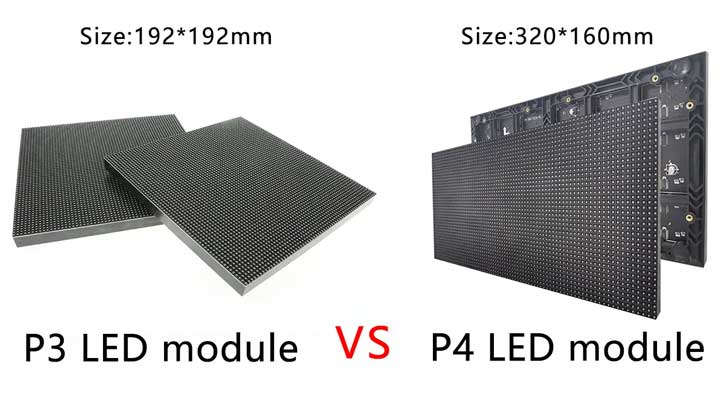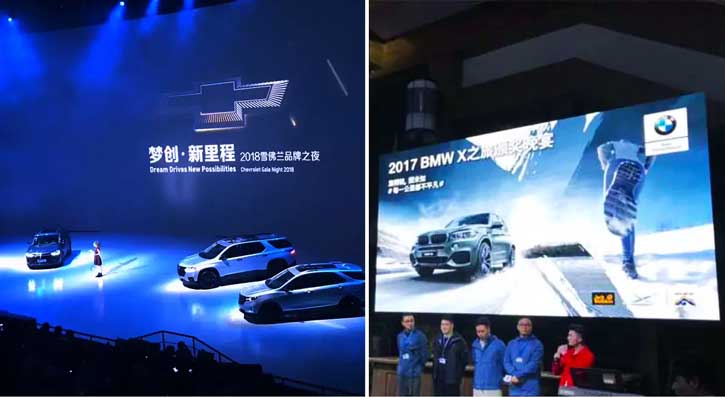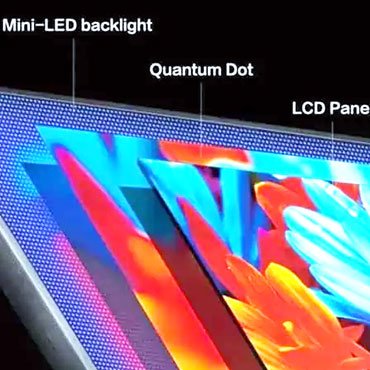P3 P4 LED wall are more commonly used LED displays because their spacing is relatively small, so many people use them as background walls or video walls. This can not only modify the background but also watch as a TV. It can be said that It is very convenient. What is the difference between LED wall P3 and P4? Which is better? Let’s talk about the difference between the two.
Before understanding the LED display, we first need to understand what the P in front of P3 and P4 means, so that when we encounter other different types of products, we can quickly respond to their problems.
If we are usually careful, we will find that all types of LED displays will form a phrase with P followed by a number followed by an LED display. It is roughly like this:P+Num+“LED display”
For example, the P3 LED display or P4 LED display we mentioned above. Then on this basis, we will see more expansion of some phrases, such as “P3 full-color indoor LED display”, “P4 outdoor rental LED display” and so on.
After splitting the phrases, some viewers must have guessed the secret between them. The P in the LED display P3 or P4 refers to the distance between the center points of the two lights (generally represents the pixel spacing), and the number after P refers to the distance between two pixels, commonly known as the point spacing.
This rule of LED screen also applies to LED wall, because LED wall is made up of LED screens. The LED display walls that can be spliced with different point spacing are also different. For example, P3 LED modules can be spliced into a P3 LED wall, and P4 LED modules can be spliced into a P4 LED wall.
Since the point spacing of P3 LED wall is smaller than that of P4 LED wall, the display effect of P3 LED wall will be better at the same distance (for example, within 4 meters).
There are more differences between P3 and P4, next, don’t keep us guessing, directly reveal the differences between P3 and P4 LED walls.
Difference between p3 and p4 LED wall
Let’s first look at the p3 p4 LED wall specifications and parameters of the two
Basic parameters of P3 LED display wall
| P3 LED Wall Specification Tables | |
| Dot spacing | 3mm |
| Module Size | 192 x 192mm |
| Module Resolution | 64 x 64 dots |
| Pixel density | 111111 points/㎡ |
| Drive mode | 1/16 scan |
| Average power consumption | 580W |
| Best viewing distance | 3~5M/㎡ |
Basic parameters of P4 LED display wall
| P4 LED Wall Specification Tables | |
| Dot spacing | 4mm |
| Module Size | 320 x 160mm |
| Module Resolution | 80 x 40 dots |
| Pixel density | 62500 points/㎡ |
| Drive mode | 1/8 scan |
| Average power consumption | 390W |
| Best viewing distance | 5~8M/㎡ |
From the above specification parameter table, we can draw the following conclusions.

P4 point spacing is 1 mm less
Although in reality, a 1 mm gap is insignificant to us, the effect in an LED display is completely different. Because 1 mm is only for the lamp beads on one LED module, and the LED wall is made up of many LED modules, so 1 mm will be infinitely amplified, resulting in differences in the final display effect.
Different clarity
The clarity of the two is different. If it is the same area and the same distance, the display effect of the P3 LED wall is higher than that of the P4 LED wall.

different viewing distances
In the range of less than or equal to 10 meters, the display effect of P3 will be better than that of P4. In the range of more than 10 meters, the viewing effect of the two is not very obvious. If you pursue cost-effectiveness, you can choose P4, but if you use P3, the effect It will be better, if it is more than 20 meters, then it will be better to choose P4.
After our actual calculation, the best viewing distance of p3 LED wall is 3–6 meters. If you watch from a distance of less than 3 meters, you may see some grainy images. In this case, it is recommended to choose an LED display with a smaller pixel pitch.
The optimal viewing distance of P4 LED wall is 4 meters, because the point spacing is a little larger than P3, so the viewing distance of P4 LED wall is longer.
If the viewing distance is less than 4 meters, there will also be a grainy feeling. If the viewing distance is relatively far, you can choose P4, if the viewing distance is relatively close, choose P3.
If the viewing distance is relatively long, but you choose a P3 screen, you will probably spend a lot of money but not achieve the desired effect.
So when we choose a display, we must first measure the viewing distance. Avoid spending more money because the viewing distance is too far, but it does not achieve better results.
Different modules
The size of a single module of the P3 LED wall 192×192mm, and the size of a single module of the P4 LED wall 320×160mm. From the perspective of a single module, the module of P4 will be larger, and the module of P3 will be smaller.
It is determined by their different point spacings. In terms of use, if a single module is larger, the gap between the modules can be reduced, the flatness of the screen can be improved, and the display effect can be guaranteed.
Different prices
Although the difference between P3 LED modules and P4 LED modules is only 1mm, after being assembled into a 1 square meter P3 LED wall and a P4 LED wall, the quantitative difference between the two reaches 48,611 points. Each difference is an LED lamp bead, which undoubtedly increases a lot of costs, which will eventually be shared by customers.
Different application scenarios
The application scenarios of LED screens are different. P3 LED displays are mainly used in indoor, large lecture halls, large banquet halls, and other occasions. The picture is clear and high in contrast. The P4 LED display is mainly used for performance stages, rental, and other occasions with a relatively long viewing distance, and the outdoor P4 screen is mainly used in squares, stadiums, and other occasions.
Summarize
Like other the LED display, both P3 and P4 have customer choices. The difference between the LED wall P3 vs P4 is that the dot pitch of P3 is smaller, and the effect will be better when viewed at a close distance, but the corresponding price will be more expensive.




